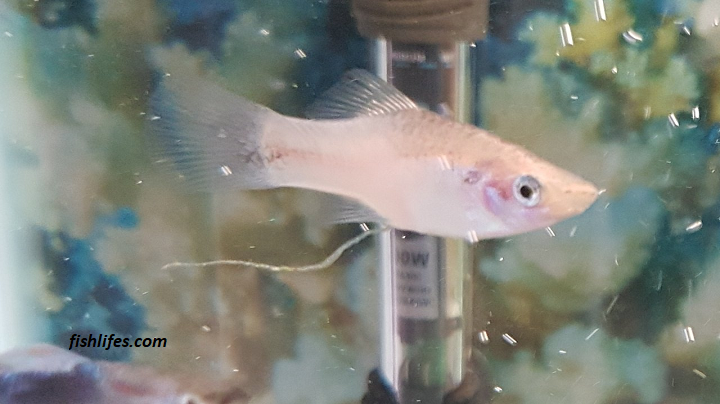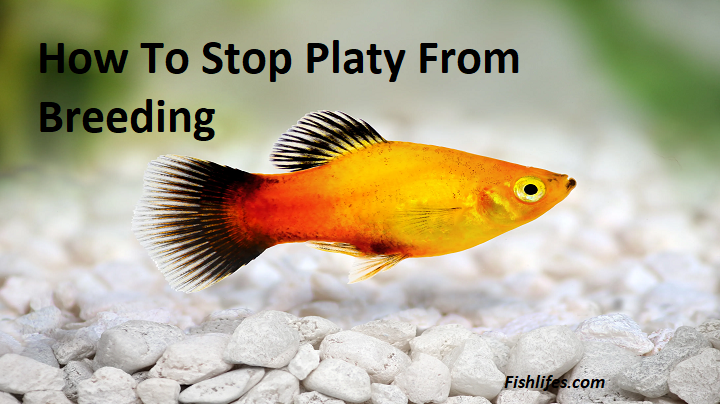Stringy white fish poop can be troubling for any aquarium hobbyist, with many wondering what it is and why it’s happening. But people rarely consider the potential consequences of this seemingly harmless nuisance – until it’s too late. This article will explore the potential risks of stringy white fish poop and how to recognize and respond appropriately.

About Fish Poop
Fish Poop is an often overlooked aspect of fish keeping that can hugely impact your aquarium’s health. Fish waste is the primary nutrient source for many bacteria in an aquarium, which helps maintain balance and prevent disease. As such, it’s important to understand how to fish poop affects the conditions in your tank and how you can effectively manage it.
Fish excrete waste through their digestive systems and nitrogen compounds from their gills. This waste accumulates over time and must be removed, or it will cause water quality issues like ammonia spikes, algae blooms, or even sickness among the fish in your tank. If left unchecked, these problems can quickly become too much for any filter to handle and significantly decrease water quality.
What Does A Normal Fish Poop Look Like?
If you’ve ever wondered what a fish’s waste looks like, the answer is probably not as gross as you think. Fish poop, while still containing organic matter and bacteria, often looks nothing like a human or land animal waste.
Fish poop tends to be far more watery than humans or other animals due to differences in their digestive systems. Generally, it will be composed of fecal matter and undigested pieces of food, but it won’t have the same consistency as land animal feces.
It might also contain mucus from their gills and scales, which can add color to the mix. The exact type of fish may determine how much solid material is present in the waste, with some species producing almost entirely liquid excrement.
What Causes Stringy White Fish Poop?
Fish poop can indicate various problems, including underlying health issues. One common issue is stringy white fish poop.
It’s not pleasant to talk about, but stringy white fish poop is a common problem for pet owners. But what causes this troublesome symptom?
The Fish Hasn’t Eaten Anything.
Stringy white fish poop, this type of feces may happen when the fish has not been eating anything or if it has developed an infection in its digestive system. To put it simply, stringy white fish poop results from a lack of food intake.
When a fish hasn’t eaten anything for some time, it may begin to produce thin, white strings in its stool. This happens due to the lack of food which causes the intestines to secrete mucus and other substances that are then expelled with the droppings. The mucus can give the appearance of thin strings along with the feces itself.

Fish Is Suffering From Stress
It could be because your fish is suffering from stress. Fish are sensitive creatures, and their environment can quickly become stressful if it’s too crowded or lacks the proper nutrients.
Stress can manifest itself in several ways, but one of the telltale signs is stringy white fish poop. When a fish becomes stressed, its digestive system slows down and doesn’t properly process food as it should.
This leads to less solid waste being excreted, resulting in thin and watery feces that often have an increased amount of mucus present in it.
Fortunately, there are some steps you can take to reduce your pet’s stress levels and prevent stringy white fish poop from occurring.
Fish Is Suffering From A Parasite Infection
When it comes to fish health, one of the most common signs of parasite infection is stringy white poop. While this may seem like an odd indication of disease, it can signify that your fish is suffering from a parasitic infestation.
Parasites like flagellates, worms, or protozoans they will feed on the nutrients in your fish’s intestine, which can cause stringy white feces. Furthermore, these parasites will often lay eggs in the waste they produce or excrete them through their bodies, making it easier to identify if the fish has been infected.
It is important to keep an eye out for any color changes in your fish’s feces and note if it becomes abnormally thin and string-like, as this could be a sign of various parasitic infections.

How To Treat Parasitic Infections
Parasitic infections are relatively common in fish and can be a major cause of distress. If your fish is suffering from a parasitic infection, it’s important to take action quickly to give them the best chance at recovery. Here are some steps to treat a parasitic infection in your fish.
- First, make sure that all other possible causes have been ruled out.
- While parasitic infections are common, there may be other issues affecting the health of the fish that need to be addressed before treating them for parasites. Once this has been done, you should determine what type of parasite is causing the issue to know which medication or treatment plan will be most effective.
- Remove any affected fish from their tank and treat them with medications designed explicitly for parasites, such as metronidazole or praziquantel.
How To Prevent Parasitic Infections
Parasitic infections in fish can cause serious health problems and even death. Left untreated, these parasites can spread to other fish, making them vulnerable to further infections. Fortunately, there are steps that aquarium owners can take to prevent parasitic infections in their fish.
The first step is to buy only healthy fish from reputable sources and ensure they are quarantined before introducing them into established tanks.
During the quarantine period, water quality must be constantly monitored, and any signs of parasitic activity should be immediately reported to an expert for further investigation.
Secondly, regular tank cleaning should be done weekly using a gravel vacuum cleaner or filter media replacement system, as this will reduce the number of parasites in the water.
Fish Is Suffering From A Bacterial Infection
Fish are some of the most popular and beloved animals in the world. Unfortunately, they sometimes suffer from various diseases, including bacterial infections.
Recently, reports have come in that fish tanks across the globe are dealing with stringy white fish poop, which can indicate a bacterial infection.
This type of bacteria is typically found inside the intestines and can cause damage if not treated properly. The symptoms vary according to species but usually include loss of appetite, weight loss, and intestinal problems such as stringy white feces or poop.
In extreme cases, it can lead to death if left untreated for too long. It is important for aquarium owners to pay attention to these signs as soon as they spot them so that proper treatment can begin immediately.
How To Treat Bacterial Infections
Knowing how to treat these infections properly is key to keeping your fish healthy and happy. You can help your fish recover from bacterial infections quickly and effectively with the correct information and supplies.
The first step in treating bacterial infections in fish is determining the specific bacteria involved. If necessary, take a sample of the infected area to a veterinarian or aquarium store for testing.
Once you know what type of bacteria is causing the infection, you’ll be able to choose an appropriate treatment option. Treatments range from antibiotics designed for aquatic use to natural remedies like salt baths or vinegar-based solutions.
Follow all instructions carefully when using any medication or remedy on your fish, and provide optimal water quality conditions during recovery time.
How To Prevent Bacterial Infections
Bacterial infections can be extremely dangerous for fish and even fatal if not treated.
The best way to prevent bacterial infections in fish is to ensure a healthy environment. This includes providing a clean tank with the proper temperature, pH balance, and salinity levels.
Furthermore, regular water changes should also be done to reduce the build-up of waste that can lead to infection.
In addition to keeping their environment clean and healthy, monitoring your fish regularly for any signs of illness or distress is essential.
Suppose you notice anything unusual about your fish’s appearance or behavior, such as changes in coloration or discolored fins. In that case, you should take steps immediately by performing a water test and treating the tank with an antibiotic treatment specific for preventing bacterial infections.
Non-Disease Reasons For Stringy White Fish Poop
Stringy white fish poop can indicate a disease or infection; they may not realize that there are other non-disease reasons why fish might have this type of waste. Stringy white poop in fish could mean that too much fat has been consumed, a bacteria imbalance exists in the water, or simply that the food was not sufficiently digested.
This type of poop should not be ignored and indicates something wrong with the fish’s environment or diet. When noticing stringy white poops in your fish, the first step is to perform a water quality test to ensure it meets all the necessary parameters for healthy living conditions.
How To Fix The Problem
Fish that have stringy white poop can be cause for concern. However, it’s important to note that it may not always indicate a disease but could result from a nutritional imbalance. Fish need a balanced diet to remain healthy and regular; solid waste indicates this.
In some cases, fish with stringy white poop may be overeating protein or fat in their diets, which can lead to digestive issues like the production of stringy waste. To fix this problem, it’s best to reduce the amount of fat-rich foods they consume and introduce more plant-based options into their diet. These provide essential vitamins, minerals, and dietary fiber, which helps keep fish more regular.
What Does Green Fish Poop Mean?
Green fish poop can mean a few different things. It may be caused by uneaten food, a reaction to certain foods, or an imbalance of nutrients in the water. It’s important to monitor your fish’s diet and water quality if you see green poop. If it persists, consult a vet for further advice.
What Does Red Fish Poop Mean?
Redfish poop is a term used to describe the reddish-brown color of the feces released by some species of fish. Red pigments cause it in their diets, such as plant carotenoids or krill. Redfish poop can indicate good health since it shows that the fish are getting enough nutrition from their food.
Why Does My Fish Have A Long Poop?
Fish poop can vary in length depending on the type of fish and what they have been eating. Longer poops can be a sign that your fish has been overeating or if they are constipated. If you notice your fish’s poop is consistently longer than usual, it may be a sign of an underlying health issue, and it’s best to consult a veterinarian.
Conclusion
In conclusion, stringy white fish poop is common among freshwater fish. It can be caused by many factors and should not be alarming in most cases.
However, suppose the stringy white feces persists for more than a few days or becomes accompanied by other concerning signs. In that case, it’s time to contact your local veterinarian or aquatic specialist for an evaluation.
Stringy white fish poop can indicate a serious underlying medical condition that requires medical intervention to restore health and well-being.
FAQ’s
Why are my fish pooping worms?
Fish can get worms from eating infected food, dirty tank water, or contact with other infected fish. If you suspect your fish has worms, take it to the vet for a checkup and treatment. Keep the tank clean and feed your fish only high-quality food to prevent future worm infections.
What Does The Parasitic Fish Poop Look Like?
Parasitic fish poop looks like any other fish poop. It is usually a brownish color and can contain undigested food particles, mucus, and waste products from the parasite’s metabolism. It may also contain feces from the host fish if the parasite has infected it.







